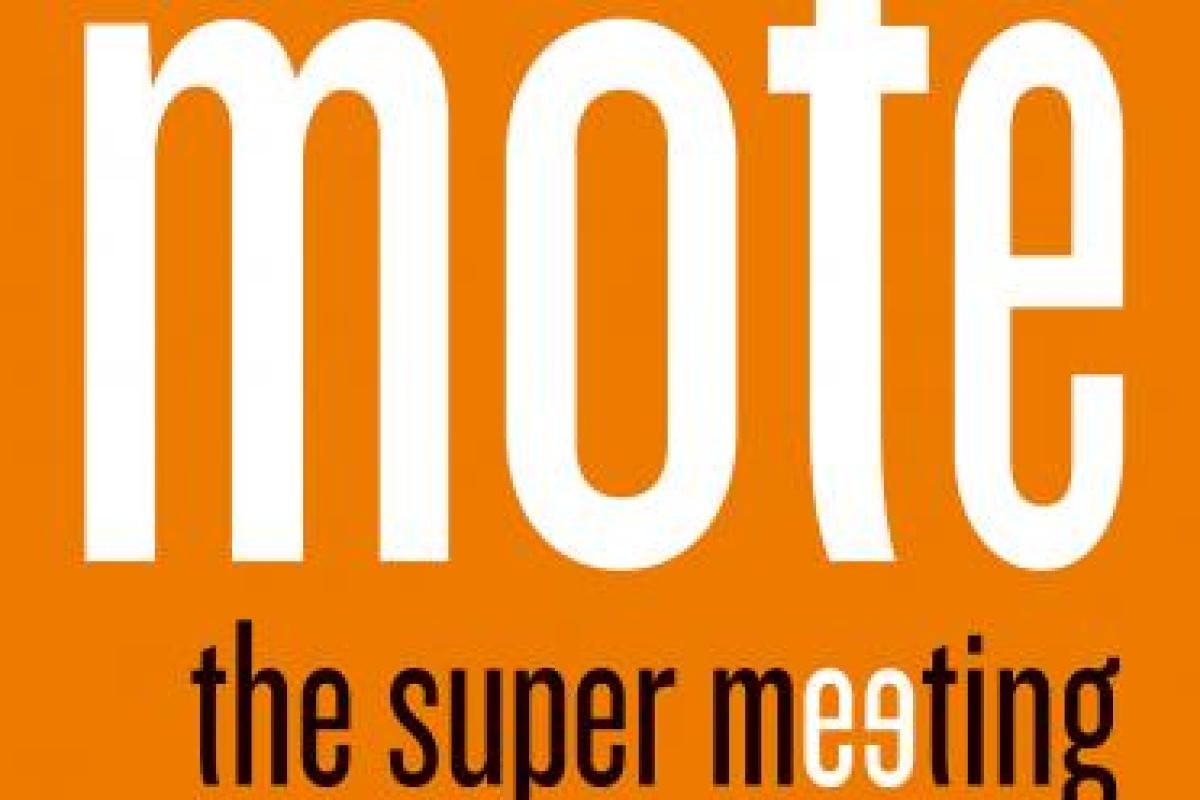Have you attended two or more meetings? Was one better than the other? It turns out that not all meetings are the same.
Most meetings, I have been told, are a colossal waste of time - meandering time sucks filled with bullies, dullards, sycophants, empty vessels - and, of course, poor old you.
Amazingly, no one has been able to figure out how to make them better - until now.
In Mote (an old English word for ‘meeting’), ad industry stalwart, David Wethey, puts forward his proposal for a brand new type of meeting - the eponymous Mote. But when 11,000 business books are published every year, can Mote actually change how the world meets?
According to Wethey, every Mote has a Leader who identifies the need for the Mote and sets the Mote's goals. Each Mote also has a Navigator who keeps time, invites others to step up or down from individual Motes (the 'stepladder' principle), prepares information in advance, and also takes notes. Wethey then goes on to identify the five principles of Mote: creating a game plan, building a small agile team, stepladder, performance, and Mote spirit.
Most Motes will be tied to projects. The nature of the project determines the number of individual Motes required and who gets invited. Think ‘Parliamentary Select Committee’, but without custard pies or Tom Watson, and with an increased chance of being able to deliver lasting change.
The book is undoubtedly a brave, considered and long-overdue attempt at solving a problem that plagues the entire business world. Wethey’s passion for the subject leaps off the page, and he spends considerable time building his case, no doubt in an effort to jolt the reader into sustained action for change. Where other books rely on wishful thinking, with little real change, Mote takes a more thoughtful, practical approach, and for that Wethey is to be applauded.
The book isn’t perfect, however. From time-to-time the language of the advertising world creeps in - references to chemistry meetings, pitches and tissue sessions will be alien to most business readers. The author extolled the virtues of storytelling in his previous book, Decide, but chose not to use the story form in Mote, which could have made the book, and by extension the ideas in it, more accessible.
Additionally, Wethey lists 14 common personality types that would struggle under the Mote system and only four that would succeed. That could mean that three-quarters of your staff, if unreconstructed, might struggle with Motes. That's a huge challenge, and one that Wethey acknowledges, but doesn’t fully explain how it might be solved.
Nevertheless, Mote is an original contribution that speaks to the single biggest differentiator between successful and unsuccessful businesses - the ability to execute. Companies who learn how to master meetings, learn how to master time. And very few of us, Scottish Police Box enthusiasts and their companions aside, ever get to do that.
Join our Book Club. If you're a member of The Marketing Society we'd love you to write a 300-word review for our Clubhouse. Or if you're an author get in touch. We've got lots of members keen to review your book. Contact Michael Piggott to find out more.
